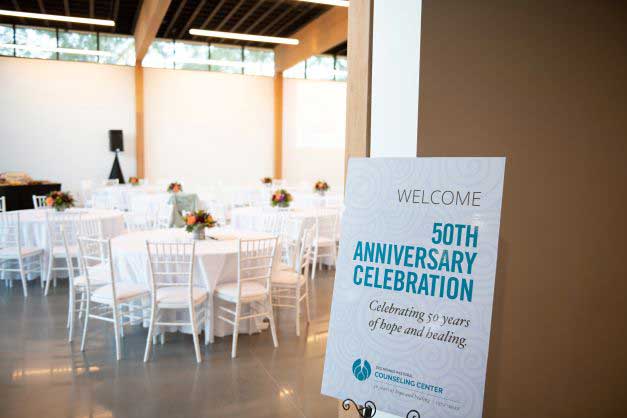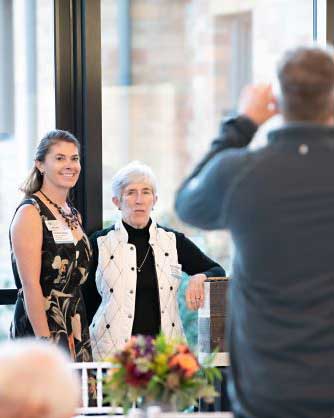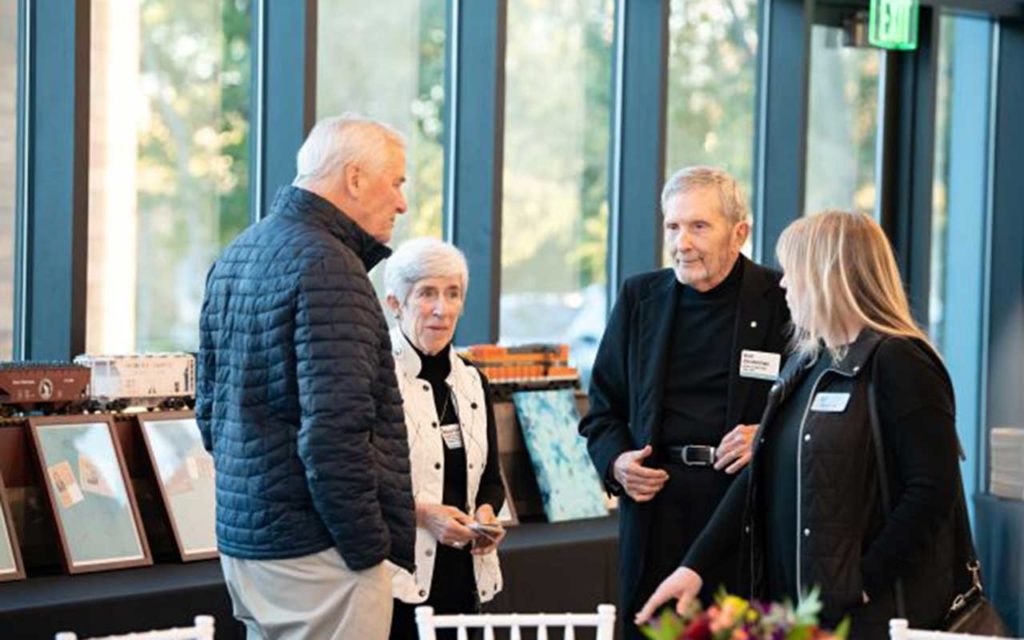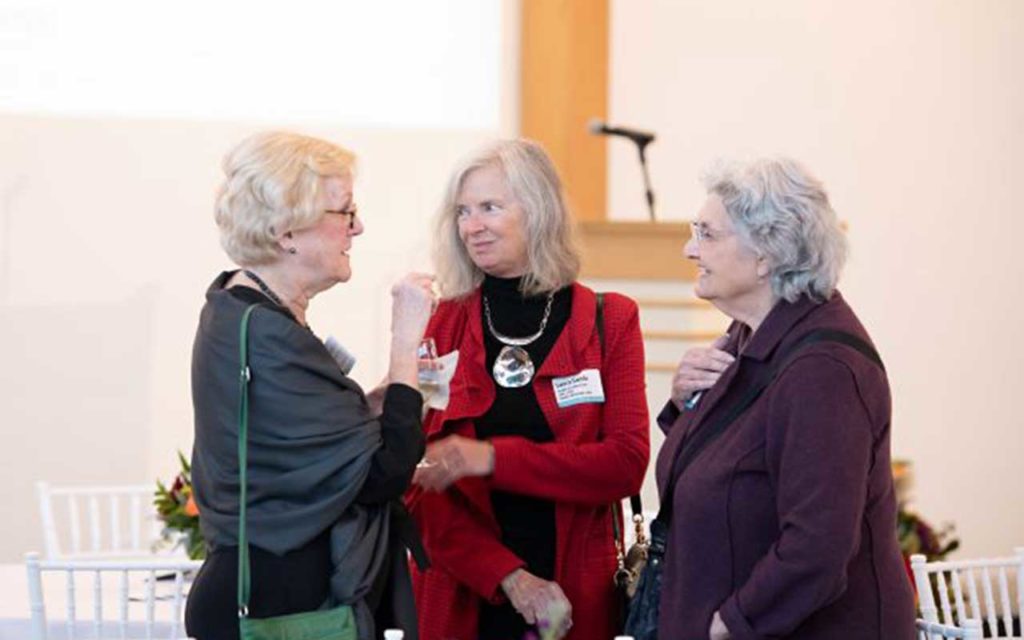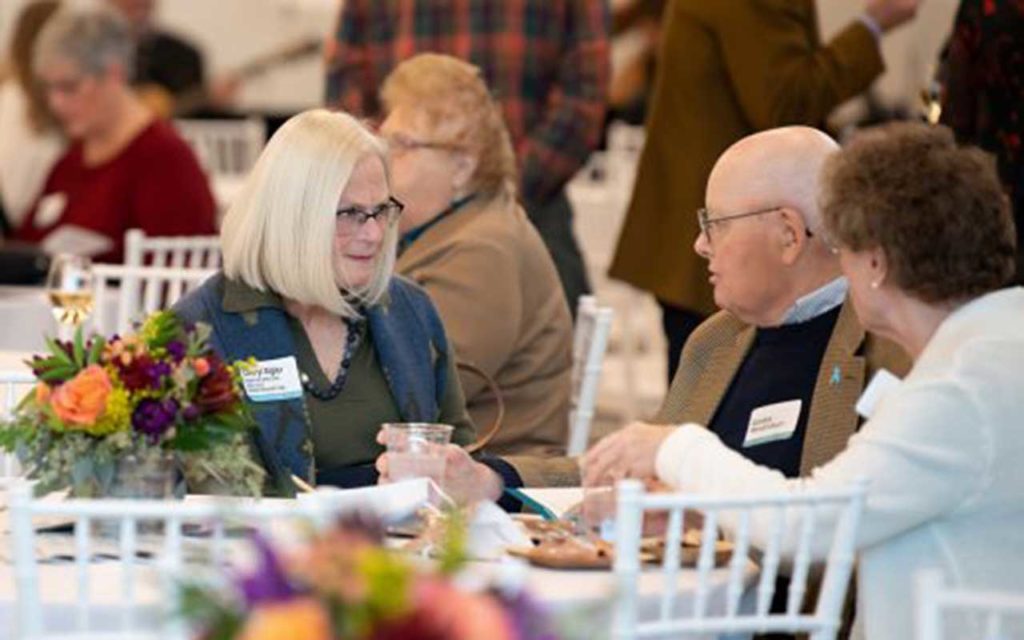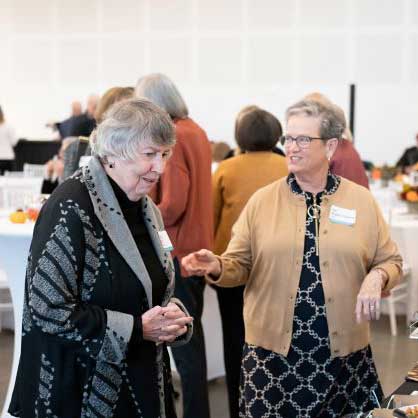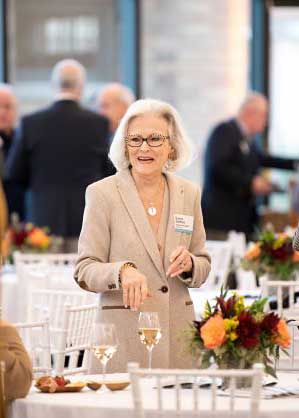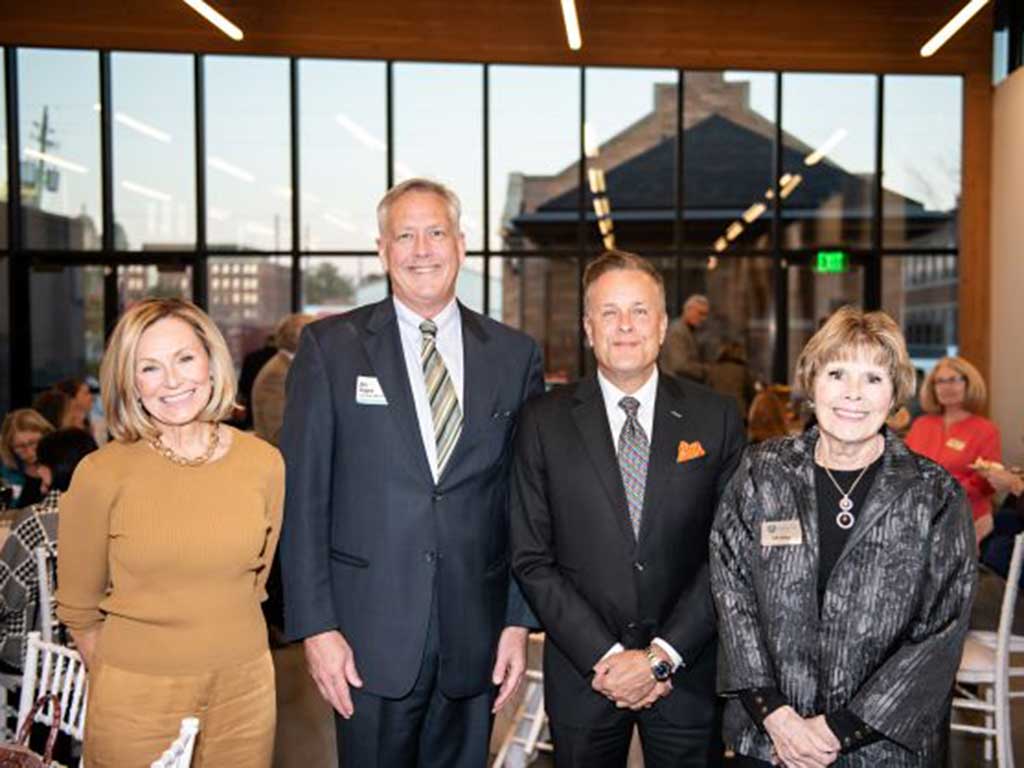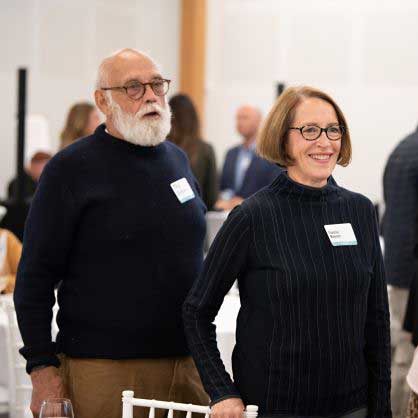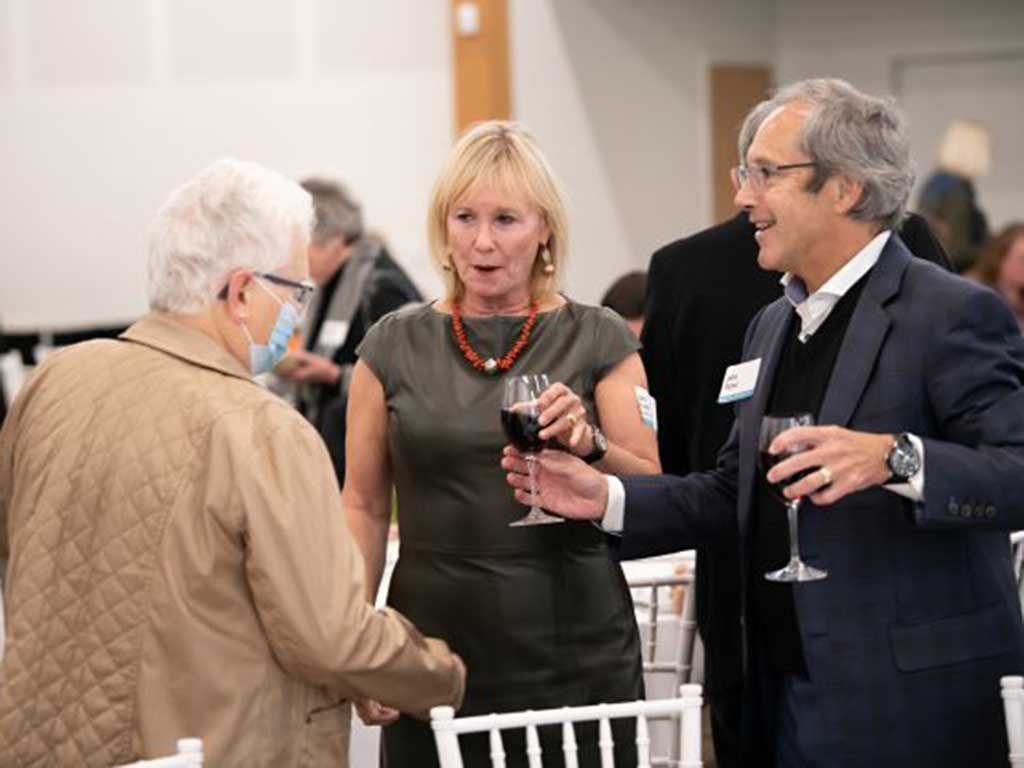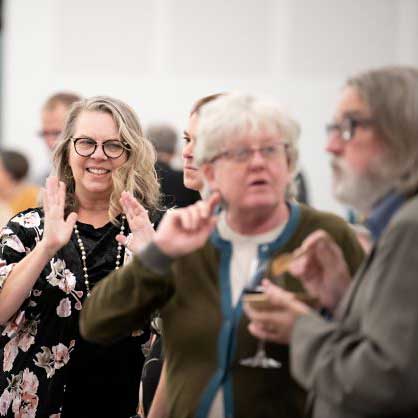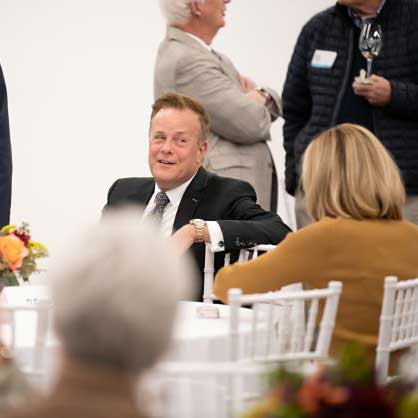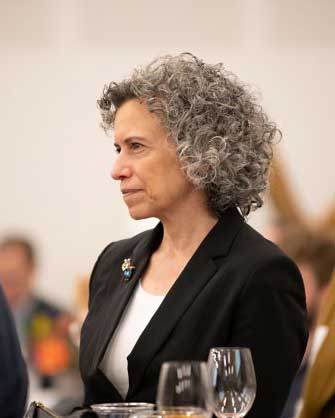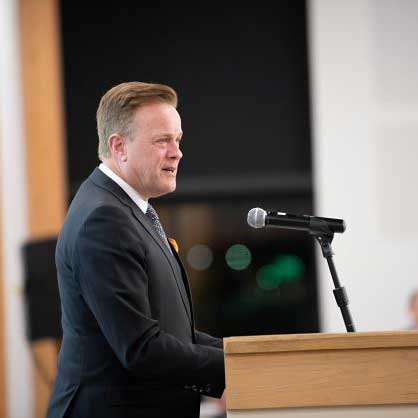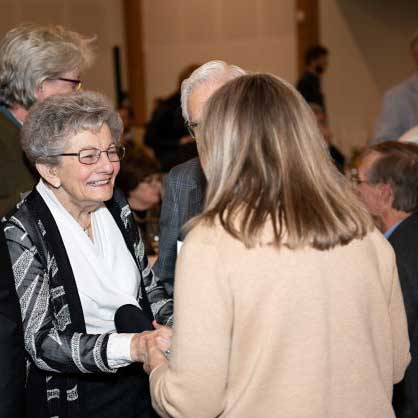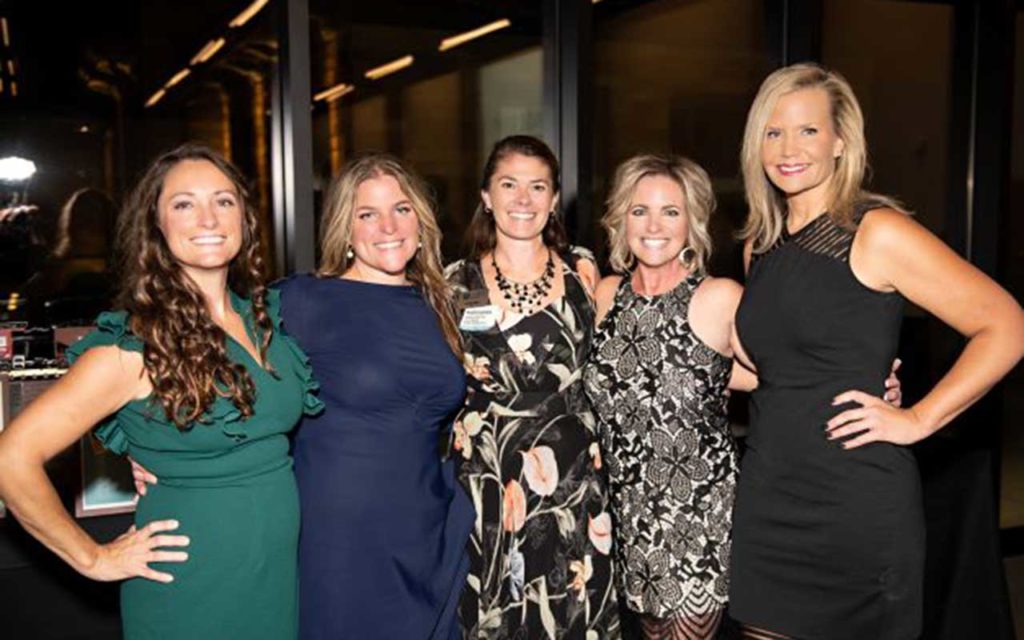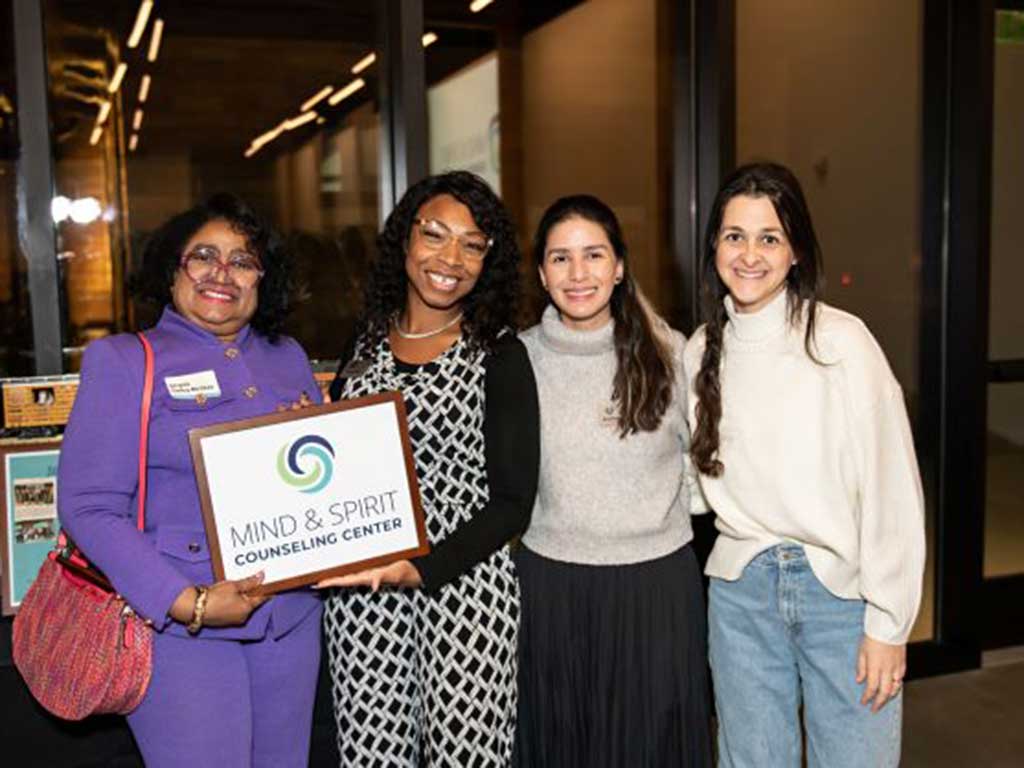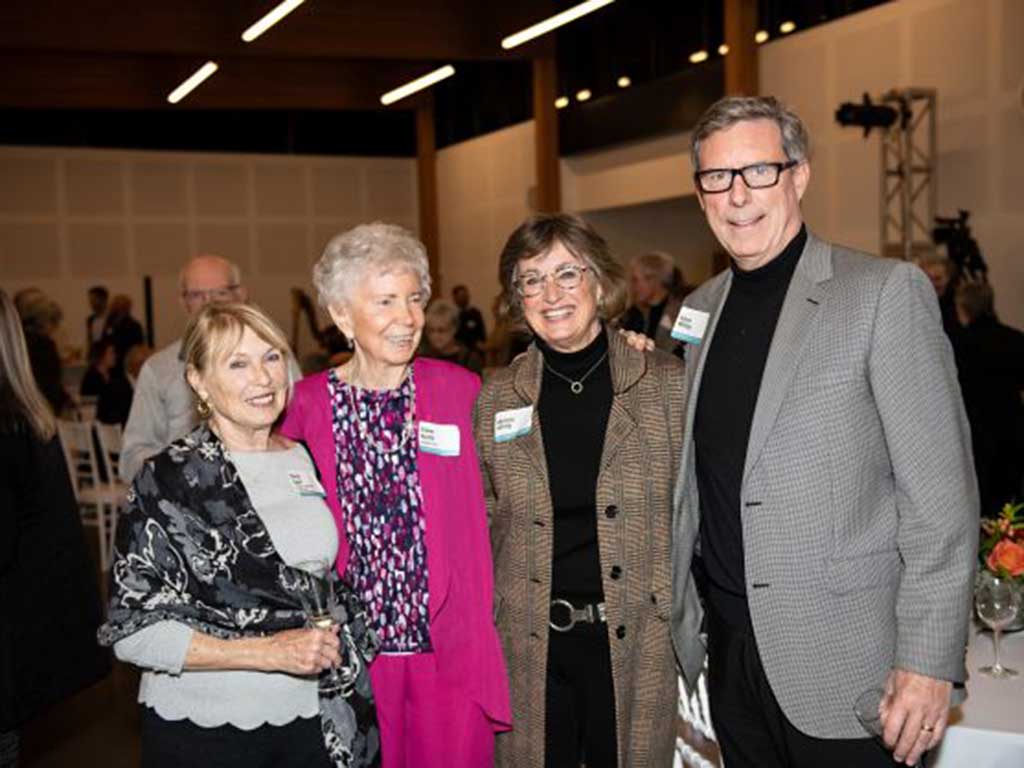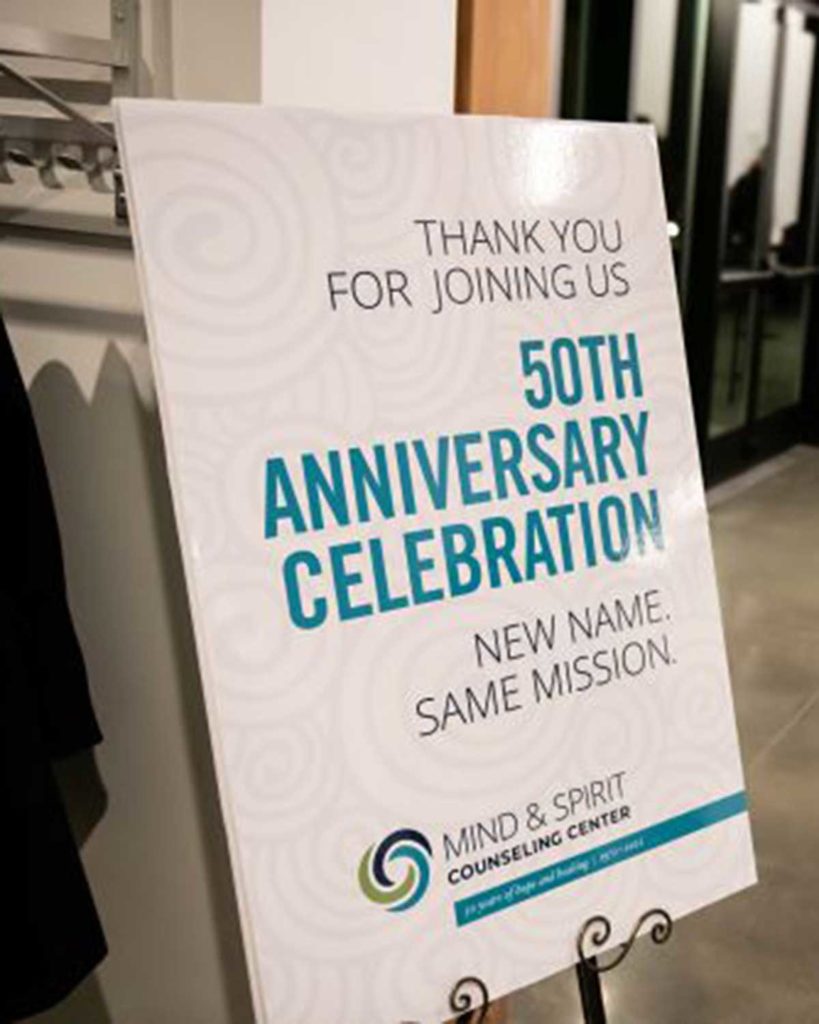2022 Women Helping Women event raises $223,000 for women, children and families who need access to mental health services
More than 500 guests participated in the Center’s 24th annual Women Helping Women event which raised $223,000. Funds will support mental health counseling, education, training and other services that impact women, children and families who are underinsured or from low income households. Sharon Goldford was our 2022 honoree and our inspiring keynote speaker was Jacquie Easley McGhee. Our 2022 planning committee co-chairs were Rachel Hardin and Laura Palmer.
50th Anniversary Reunion for Past & Present Staff

Join us on June 16 for a reunion of past and present
Center staff and training program participants!
June 16, 5:30pm-9:00pm
Raccoon River Park Nature Lodge
2500 Grand Ave, West Des Moines, IA 50265
Come when you can and stay as long as you like! You are welcome to bring a guest. Formal remarks will begin at 6:30 pm. Beverages and hors d’oeuvres will be provided. We hope you’ll bring stories and memories to share!
Questions?
Contact Paige Franzluebbers | (515) 274-4006 | pfranzluebbers@mindspiritcenter.org
2022 Women Helping Women Sponsors and Donors
Thank you to all our sponsors and donors for supporting the 24th Annual Women Helping Women luncheon on May 20, 2022! Your contribution ensures mental health services for women, children and families who are uninsured or underinsured. Through your generosity, the event raised $223,000!
2021 Women Helping Women raises $218,000 to support mental health counseling and other services for women, children and families
More than 500 guests participated in the Center’s 24th annual Women Helping Women event which raised $223,000. Funds will support mental health counseling, education, training and other services that impact women, children and families who are underinsured or from low income households. Sharon Goldford was our 2022 honoree and our inspiring keynote speaker was Jacquie Easley McGhee. Our 2022 planning committee co-chairs were Rachel Hardin and Laura Palmer.
2020 Women Helping Women theme is Domestic Abuse
Domestic abuse is the theme of this year’s Women Helping Women annual luncheon. Let us bring our attention to a plight suffered by countless women, children, men, elders, people with disabilities, and LGBTQ individuals.
Thank you to our 2018 donors!
We gratefully acknowledge and thank all who so kindly contributed to the Center in 2018. This generosity brings hope and healing to children, teens and adults in need of high quality mental health services.
Thank you to our 2018 Women Helping Women Sponsors and Donors
Thank you to all our sponsors and leadership donors for supporting the 2018 Annual Women Helping Women! Your contribution ensures mental health services for women, children and families who are uninsured or from low-income households.
Thank you to the 2017 women helping women sponsors and donors
Thank you to the many businesses and individuals who have provided support to the 19th Annual Women Helping Women Luncheon, ensuring greater access to quality mental health services for vulnerable girls and women from low-income households.
